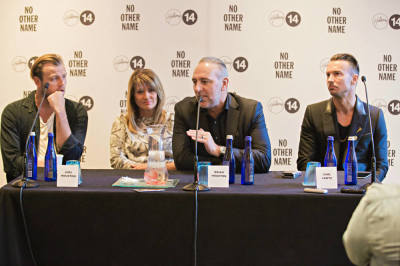The dangerous legal structures of Hillsong Church

Jesus once told a parable about two different people constructing houses. One built on a foundation of stone and the other on sand. When the rains came the house built on sand collapsed. The foundation was critical for a lasting home. In the parable, the foundation represented the words of Jesus and obeying them.
In a similar manner, Hillsong Church was constructed on a foundation of sand.
Australian pastors Brian and Bobbie Houston founded Hillsong in Australia and launched a bold strategy to plant churches internationally.
In 2010, the legal structure for Hillsong in the United States was being constructed. Attorney Stephen Lentz, the father of Carl Lentz who would become Hillsong’s most popular American pastor, drew up the articles of incorporation for Hillsong Ministries USA, Inc., and used language common to many televangelist churches’ governing documents. Stephen Lentz wrote in Article 6, “The Corporation shall have no members.”
These words started appearing frequently in church corporation documents in the 1990s. In 1994, before Joel Osteen became pastor, Lakewood Church restated its articles of incorporation with the words, “The corporation elects to have no members.”
The churches of televangelists Mike Murdock, Eddie Long, and Creflo Dollar also adopted similar language. Ironically, the bylaws of Grace Community Church, pastored by well-known Hillsong critic John MacArthur, use the exact same words as Hillsong Ministries USA: “The Corporation shall have no members.”
This odd phrase prevents church attendees from being “corporate members,” which means that church attendees have no voting rights in the church. Instead, key decision-making is restricted to the church board of directors or church elders.
Also in 2010, Hillsong’s New York City church was established. Jeffery Coombs, an attorney in Stephen Lentz’s law firm, drew up the articles of organization for Hillsong NYC, LLC. Hillsong began using limited liability companies (LLCs) to structure their churches.
Hillsong NYC’s governing document stated, “The limited liability company will be managed by one or more managers …”
Should the language of business define a church and how it operates?
In his book The Business of Church, Stephen Lentz explained the purpose of church LLCs:
“Because we live in a litigious society, it is important to isolate different initiatives that might have high risks. It is first and foremost a containment strategy. We recommend using a single-member limited liability company (LLC) to isolate different church initiatives that are vital to the footprint of the church in its community. Each activity can be vigorously pursued without putting all of the assets of the church at risk.”
By following this strategy, Hillsong created LLCs to function as property holding companies operating independently of the churches. In Maricopa County, Arizona, home of Hillsong Phoenix and Hillsong University, PHX Property Holdings LLC owns 31 properties. While the county assessor website shows 31 property listings, many of these are small adjacent lots purchased to build two church sanctuaries and provide parking. There are also vacant lots among the property listings.
Stephen Lentz failed to recognize the fatal flaw of church LLCs. There is little, if any, accountability provided for the managers.
The same name game
Some of Hillsong’s American churches operated as traditional incorporated non-profit organizations. In 2016, the tradename Hillsong Phoenix was registered to Citichurch International, Inc.
Citichurch included Australian Hillsong leaders Nabi Saleh and George Aghajanian on the church board of directors. How can board members living thousands of miles away provide proper oversight for a church?
In 2017, Hillsong Phoenix, LLC was registered in Texas. Therefore, two different organizations existing at the same time used the name “Hillsong Phoenix.” Trinity Foundation describes this practice as The Same Name Game.
If a check was written out to Hillsong Phoenix, would the money go to Citichurch or the LLC registered in Texas?
The collapse of Hillsong
New allegations of misconduct by Hillsong founder Brian Houston have shaken Hillsong Church. Critical media coverage from the Discovery+ documentary series "Hillsong: A Megachurch Exposed" has caused Hillsong pastors to question their ties to the Hillsong brand, resulting in several announcing they are leaving to start new churches. (Disclaimer: Trinity Foundation investigator Barry Bowen, the author of this article, appears in episode three of the documentary.)
Has Hillsong Church’s former pastors learned from their mistakes?
In February 2022, Hillsong Kansas City changed its name to Kingdom City Church. The church has two officers (president and secretary) and four additional board members. Only one of the six church leaders is from Kansas City. Again, how can people appearing to be scattered across the country provide proper oversight from a distance for a church?
Sam Collier resigned from his position as pastor of Hillsong Atlanta and has already filed articles of incorporation for Story Church, Inc. The articles of incorporation states, “The corporation will not have members.” SERIOUSLY?
Who will comprise the church board? No other names are listed in the church’s articles of incorporation. Who will hold Collier accountable?
Originally published at Trinity Foundation
Barry Bowen is staff investigator at Trinity Foundation, a nonprofit organization that investigates religious fraud, theft and excess. From 2005 to 2010 Bowen served as one of the third-party whistleblowers assisting the U.S. Senate in its investigation of six TV ministries.





















